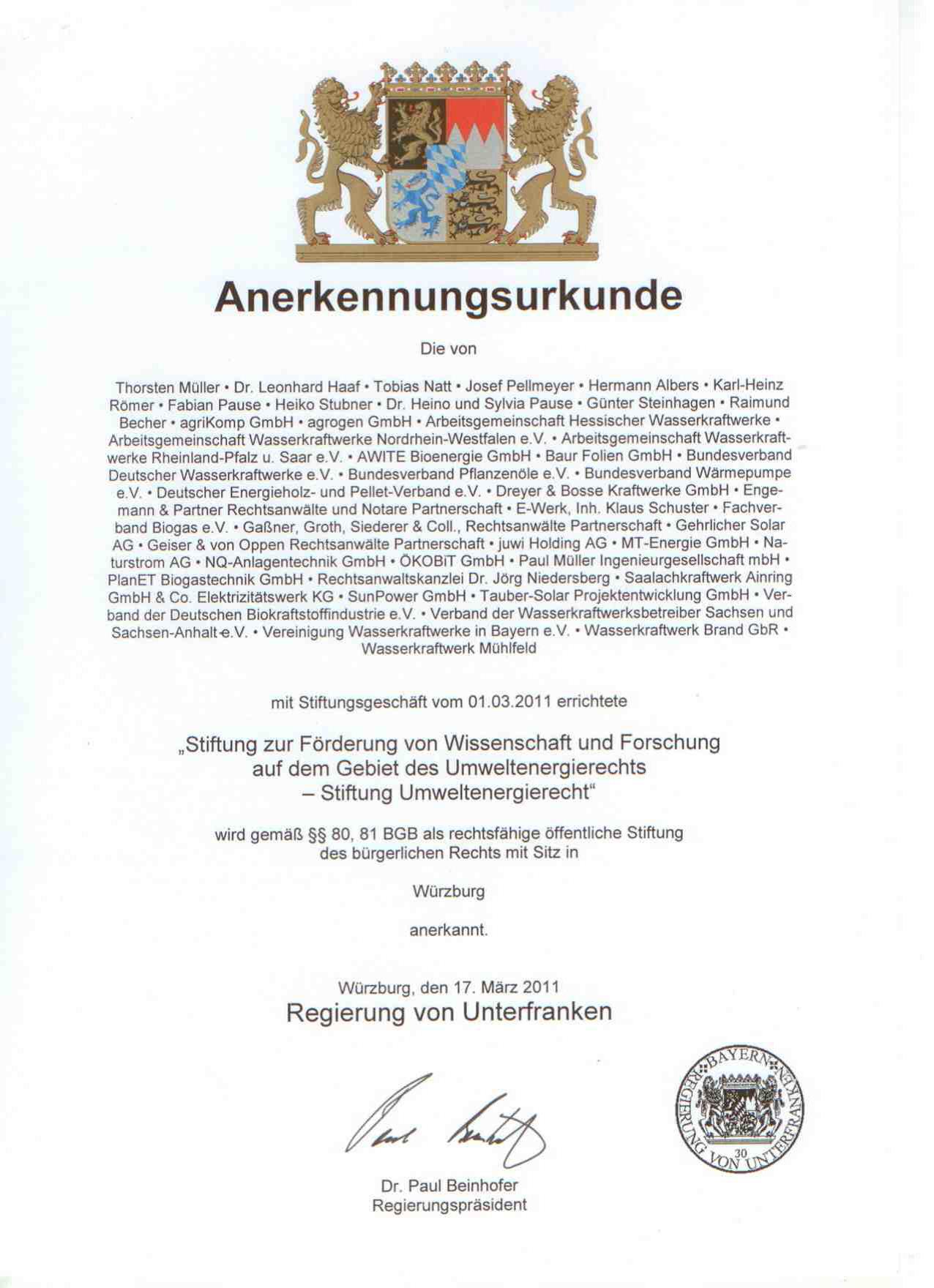The studio for the legal framework of the energy transition
New laws lay the foundation for change – whether it concerns technological innovations in the energy sector or the rapid uptake of renewable energies. But how exactly does the legal framework in Germany and the EU need to change to reach our climate protection goals? Ever since we started back in 2011 in Würzburg, Germany, this has been and still is the question at the very core of our work. As an independent and non-profit research institute, we examine how the laws need to be transformed and provide concrete and custom-fit models. Thus, with well-founded expertise and scientific methodologies, our team provides new ideas for all stakeholders in the energy transition.
Our roots
While working on the reform of the Renewable Energy Sources Act (EEG) in Germany at the Federal Ministry for the Environment, our founder Thorsten Müller made two observations:
- Firstly, the law has a profound meaning for the energy transition, as it enables change (in processes) in various areas like technology, society and economy.
- Secondly, there was a lack of an independent research institute that systemically provides a comprehensive structure to stay on top of the legal landscape.
The Stiftung Umweltenergierecht aimed to fill this gap. It started as part of the University of Würzburg from 2007 to 2011 and eventually formed an independent scientific entity as a foundation. Thus, on 1. March 2011, ten days before the nuclear catastrophe in Fukushima, the Stiftung Umweltenergierecht was born. Building on the success in the past – then as a part of the University of Würzburg – our legal scientists continue to conduct their research on all areas related to the energy transition.

